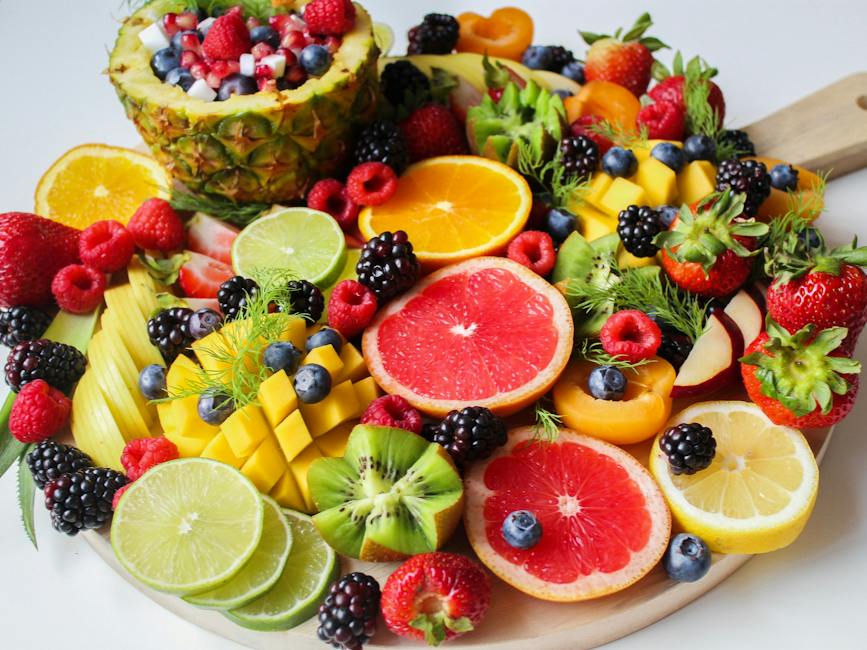Winter Fruit Wonders: Your Guide to Seasonal Sweetness
As the days grow shorter and the air turns crisp, nature offers a bounty of winter fruits that not only tantalize our taste buds but also provide essential nutrients to keep us healthy through the colder months. In this comprehensive guide, we’ll explore the delicious and nutritious world of winter fruits, answering your most pressing questions and offering tips on how to select, store, and enjoy these seasonal delights. So, grab a cozy blanket and a warm cup of tea, and let’s dive into the sweet and succulent secrets of winter fruits.
What Are the Best Fruits to Eat in Winter?
Citrus Galore: Vitamin C Powerhouses
- Oranges: Bursting with vitamin C, perfect for boosting immunity.
- Grapefruits: A tangy option that can help with weight management.
- Mandarins: Sweet, easy-to-peel snacks for on-the-go nourishment.
Exotic Flavors: Tropical Treats in Cold Weather
- Pomegranates: Packed with antioxidants and a unique, tart taste.
- Kiwi: A small fruit with a big vitamin K and C punch.
- Persimmons: A sweet, honey-like fruit rich in fiber and vitamins.
Forgotten Gems: Rediscovering Traditional Winter Fruits
- Quince: Aromatic and great for jams and jellies.
- Dates: Nature’s candy, full of energy and essential minerals.
How to Select and Store Winter Fruits for Maximum Freshness?
Choosing the Perfect Fruit
When shopping for winter fruits, look for those that feel heavy for their size, indicating juiciness. The skin should be vibrant and free from excessive blemishes or soft spots. For citrus fruits, a little give is okay, but they should mostly be firm.
Storing for Longevity
- Citrus fruits: Store in a cool, dry place or in the refrigerator crisper for extended shelf life.
- Pomegranates: Keep in a cool, dark place or refrigerate to maintain freshness.
- Kiwi and persimmons: Ripen on the counter, then refrigerate to slow down the process.
Can Winter Fruits Help with Seasonal Affective Disorder (SAD)?
The Mood-Boosting Benefits of Winter Fruits
The lack of sunlight during winter can lead to SAD, a type of depression related to seasonal changes. Winter fruits, with their high vitamin content, especially vitamin C and folate, can play a role in boosting mood and combating the effects of SAD.
Nutritional Synergy for Mental Health
- Vitamin C: Found in citrus fruits, it’s essential for the synthesis of neurotransmitters like serotonin.
- Folate: Present in dates and pomegranates, this B-vitamin is linked to the production of dopamine and serotonin.
Creative Ways to Incorporate Winter Fruits into Your Diet
Sweet and Savory Recipes
- Salads: Toss pomegranate seeds or orange segments into a winter salad for a refreshing crunch.
- Desserts: Bake a persimmon pudding or make a kiwi sorbet for a healthy treat.
Snacking and Beverages
- Smoothies: Blend kiwi or mandarins with spinach for a nutrient-packed drink.
- Teas: Infuse hot water with citrus peels for a warming, vitamin-rich tea.
Conclusion: Embrace the Sweetness of Winter
Winter fruits are not only a delicious way to enjoy the season but also a powerhouse of nutrients that can help you stay healthy and happy. From the vitamin C-rich citrus family to the exotic flavors of kiwi and persimmon, there’s a winter fruit to suit every palate. By selecting the best fruits and storing them properly, you can enjoy their benefits throughout the season. So next time you’re feeling the winter blues, reach for a winter fruit and let its natural sweetness brighten your day.


